UN working closely with govt to respond to HIV outbreak
Pakistan is the second country in Asia and the Pacific with the fastest growing HIV epidemic
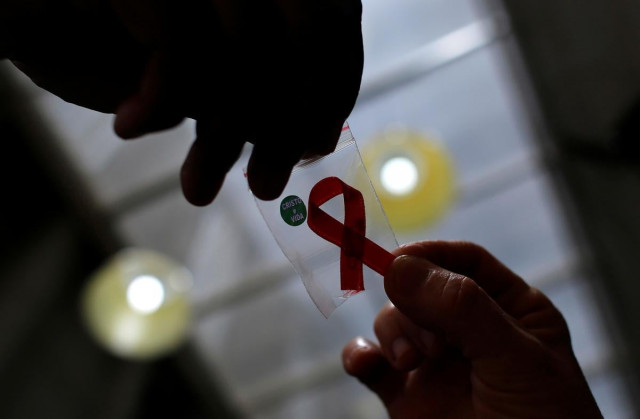
PHOTO: REUTERS
“We stand ready to support the government in strengthening the health system in Pakistan to cope with and prevent such tragedies from happening again,” said UN Resident and Humanitarian Coordinator in Pakistan Neil Buhne in a press statement.
With 20,000 new HIV infections in 2017, Pakistan is the second country in Asia and the Pacific with the fastest growing HIV epidemic.
Larkana takes fright as HIV cases hit 156
Several HIV outbreaks have occurred in the past years, and the recent outbreak was detected among residents of Ratodero Taluka in Larkana district of Sindh. As of May 6, 186 people were infected with HIV, mostly children.
The Sindh Provincial Ministry of Health is leading an epidemiological investigation with support from international partners to understand the cause, extent and chain of HIV transmission.
The Ministry of National Services, Regulation and Coordination (MNHSRC) and Sindh Provincial Health Ministry have called on all health care facilities to strictly follow universal precautions and use clean and sterile equipment when administering injections and in transfusing blood.
AIDS-infected doctor arrested for allegedly spreading HIV among patients in Larkana
The Sindh Ministry of Health also says it has reinforced policies to stop unlicensed informal medical practices. UNAIDS, UNICEF, WHO and other UN agencies are closely collaborating to ensure that the UN’s collective action will complement the government’s efforts to effectively address the critical gaps in preventing new HIV infections.
With the support of the UN, international expertise and adaptation of good practices from other countries facing similar challenges will be brought in, where needed. The UN is also working to ensure that the rights and privacy of all infected and affected people are upheld, to guarantee that persons living with HIV can live with dignity and without fear of stigma and discrimination.
HIV disproportionately affects the most vulnerable and marginalised members of society, including children and young people. While there is no vaccine or cure yet, it can be prevented and treated.

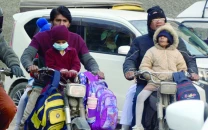

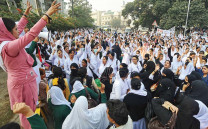
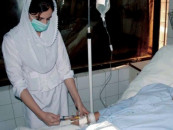

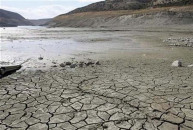











COMMENTS
Comments are moderated and generally will be posted if they are on-topic and not abusive.
For more information, please see our Comments FAQ